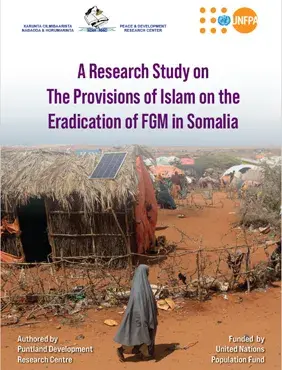Female Genital Mutilation (FGM) in Somalia, rooted in culture and religion, has faced eradication efforts since 1977. UNICEF and UNFPA collaborated with local organizations to raise awareness and provide training. Despite these efforts, 98% of Somali women aged 15–59 have undergone FGM.
A UNFPA-commissioned study by PDRC examined FGM's historical precedence and resistance from the Ulama (Somali religious scholars). It used literature reviews, interviews, and focus groups in various cities. The study found that FGM lacks support in the Quran, Hadith, Ijma’a, or qiyas. Ulama interpretations vary, with some considering Type I FGM as recommended, while Type III is seen as prohibited. Some argue FGM is virtuous, but the Ulama recommend consulting medical practitioners before ruling on FGM. They emphasize that the Prophet (PBUH) never practiced it, concluding that FGM is not permissible in Islam, aligning with the authentic Hadith: "Do not harm yourself or others."



